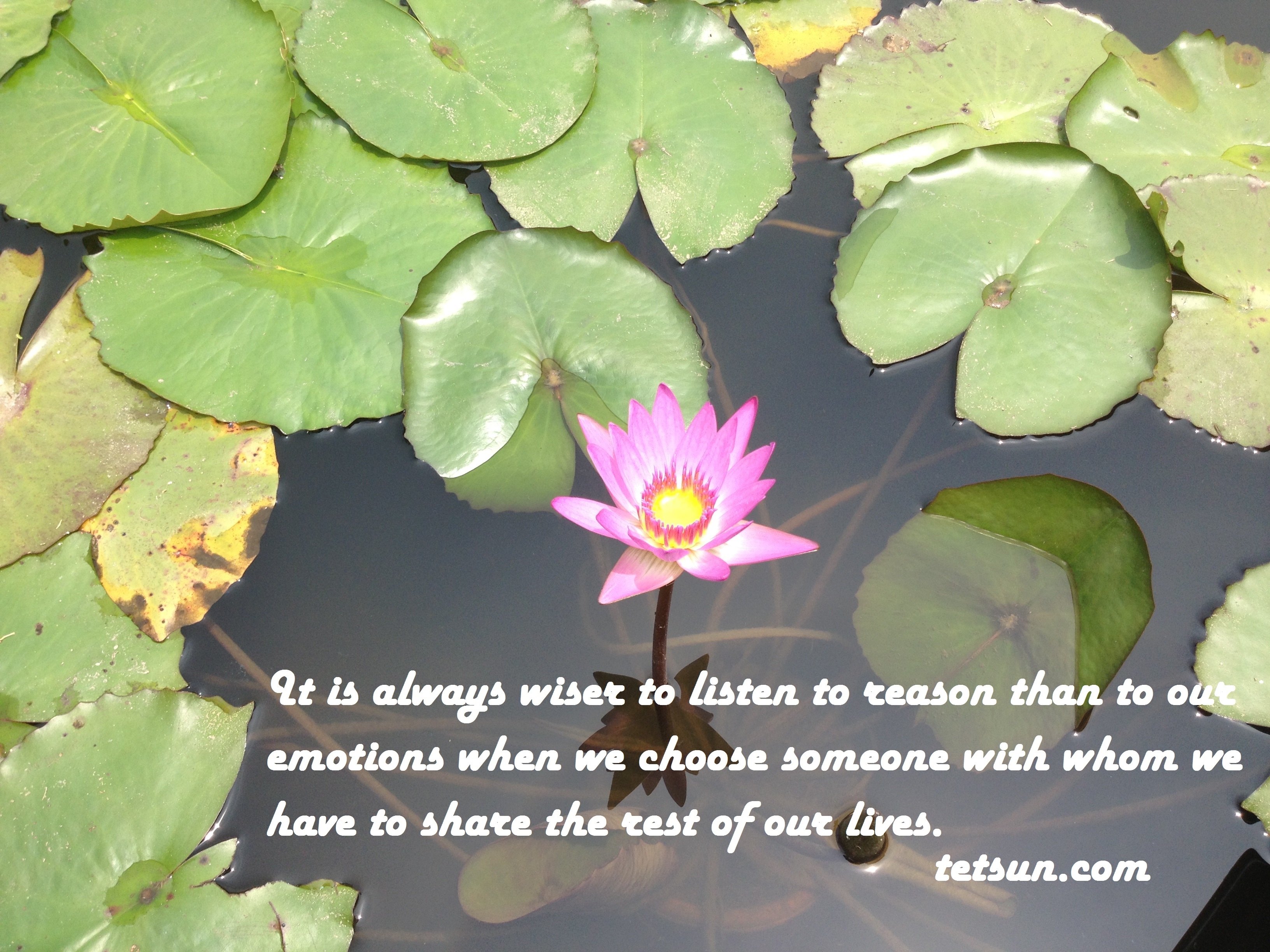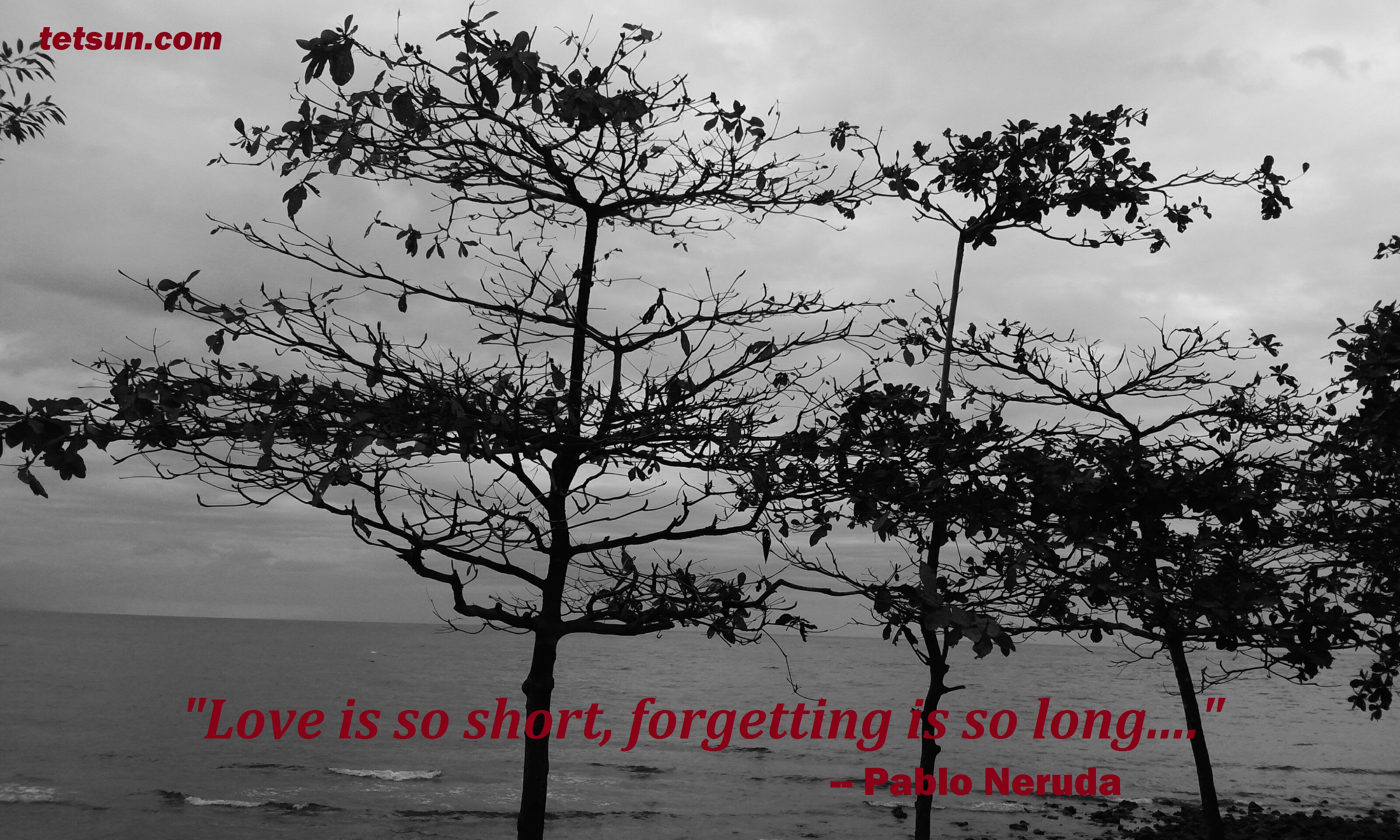
Loving oneself



I heard the music from the educational game that my son was playing on his iPad , and it brought me back to December 2022 when he and I were quarantined for 2 weeks in a hotel. For two weeks he played those games on the iPad or watched his favorite movies or listened to his favorite music. Over and over and over again. For two weeks, we could not leave our hotel room, tested for Covid almost every day, reminded twice a day to check the temperature, got a knock on our door three times a day for the food that was left outside our room.
Hearing the music makes me sad remembering how hard it was for me, worrying about how long my son could take being quarantined when he was used to having people around him at home in the Philippines.
But he survived quarantine without giving me a hard time.
My husband and I talked about how our son, with his Autism, is tougher and more patient than we thought he could ever be.
He’ll be 13 soon, and though his language and other skills are still those of a 4- or 5-year old, emotionally he is more sensitive than some adults. He can tell when he has upset someone, and he won’t hesitate to say “I’m sorry” and give them a hug. When he’s happy, he just comes up to me and gives me a kiss or a hug. The simplest thing can make him so happy. The sweetest smile he has ever given me came after he saw the read-aloud video I made for one of his favorite books.
Though sometimes I still wake up in the middle of the night worrying about his future, every day I am thankful that he brings us joy, and that he has made me and his father better people — more understanding, loving and patient towards each other.
To us he is a gift that others may find hard to accept.
Like most, I hope for better things in 2024, but I do have a lot to be thankful for this year.
Have you counted your blessings yet? 😊
I wish you all a prosperous 2024! 🎉🎉🎉
T.

For Z.
“Living well is the best revenge.” — George Herbert
I feel very fortunate to have come across this aphorism when I was relatively young. I think it was from an episode of Seinfeld that I heard it, and it was the first time it made sense to me because at that time I was rejected by someone I was madly in love with, and he had already moved on.
When I heard Seinfeld say, “The best revenge is living well,” it was like figurative scales came off my eyes, and I thought, “Why do I cry my eyes out when he is having a good time? Why do I let him know that I’m suffering when he is happy with his life? Why do I think he’ll be unhappy if I tell him I’m unhappy? He won’t! Because he doesn’t care!”
It’s amazing how an episode of a sitcom can change one’s life, but that’s what an episode of Seinfeld did for me. It made me realize that I lose if I let the one who broke my heart know that I’d become hopeless without him. I decided I was going to get my revenge by becoming a better version of myself.
A quick summary: I got over him; I’m happily married NOT to him; he and I have become best friends, me becoming his confidante for years now.
This is a lesson I always share with young friends who tell me about being betrayed or dumped by a friend or boyfriend/girlfriend, or adults who, sadly, have hatred for other people.
Harboring anger or hatred towards people is really exhausting because it takes a lot of energy which could be spent on something more productive.
Instead of spending time and energy badmouthing the person you hate or are angry with, use that time and energy trying to feel better, to look better, or to do something that will benefit you — start a hobby or a project, read that book you’ve been putting off reading for years, visit an elderly member of your family, do some gardening, exercise and lose weight and feel and look better. There are so many things worth spending your time and energy on rather than feeling angry with a person who most likely is not spending a single minute thinking of you.
In other words, LIVE WELL. Once you focus on trying to live well, one day you’ll realize that you really don’t care what the other person thinks anymore. And that is going to be such a relief.
I’ve heard angry people say they want the ones who hurt them to suffer. Anyone who was hurt has the right to feel anger, but it is also important to be aware that wishing for others to suffer simply proves that you, yourself, are suffering. Misery loves company after all.
If you let the other person know you are suffering, you lose. He wins.
Don’t let him win.
Live well. And win.



This year is the 14th year my husband and I have been married. It may not be that long for those who have been married for at least two decades, but I am grateful we have come this far and are as committed to each other as we were on our wedding day.
As I reflect on my marriage, I feel so grateful that my husband still has the patience to stay married to me. I joked about it with my Facebook friends, but in all honesty, I really am grateful. I am not a very easy person to live with — I can be really mean to my husband, but we do find more reasons to laugh about with each other than reasons for meanness.
I don’t think there’s really any special secret to a lasting marriage — friendship and commitment are all that’s needed.

Xiamen


The moon one beautiful Jimei night.
These lines from moviejoltz’s review of Ad Astra made me want to watch the movie, and I did. When I first heard of this Brad Pitt movie, I was not keen on watching it because I am not a Brad Pitt fan. But after watching this movie, I can honestly say I like how Brad Pitt played his character, Roy McBride, so well that I forgot him as an actor and just saw Roy the cold and lonely astronaut.
All throughout the movie, the character’s isolation, loneliness is apparent even in his smile, in his politeness and composure, and that isolation/loneliness has been brought on by the uncertainty of the fate of his father who had left earth and never came back.
There are three themes that made me like this movie: one-sided devotion, stubborn pursuit of a dream, and attitudes toward failure and success.
How many of us, in our youth, have experienced being devoted to somebody — spending day and night thinking about that person, wondering what they were doing that very minute and if they were thinking about us too. Then we find out that that somebody has been living their life and has not had time to think about us. Roy, in his 40’s, had not been able to fully live his life as the pain of losing his father in his youth had somehow made him build an emotional fortress around himself making him stoic in the face of many challenges. Then when he finally saw his father again, he realized how all these years when he thought his father was dead without being able to say goodbye, his father was alive and consumed by his dream of finding intelligent life in another planet, with not much room in his mind for his only child. Yet Roy as a grown man, only remembered his father’s words, “I love you, son” and told his father, “I still love you, dad.”‘ He was a young man when his father left him, and his heart remained a young man when he saw his father again, still filled with love for the father who had abandoned him.
Clifford McBride’s stubbornness in pursuing his dream of finding intelligent life in another planet even though it was already clear that there was none, is no different from the many different people’s insistence on finding something that is not there or achieving something that is obviously unachievable. Where some people easily give up on their dreams, others, for whatever reason, will fight to the end achieving that dream even if it meant leaving everything else that used to mean something to them — even family. And Clifford McBride did just that, in the end he lost everything but the love of his son, which would have been enough but sadly, it wasn’t for him.
One of my favorite scenes in the movie is the conversation between Roy and his father when his father finally admitted to Roy that he had failed in finding intelligent life in Neptune, to which Roy answered: “You didn’t. We’re all we’ve got.” And this shows a very clear contrast in the way the two men viewed failure and success. The father viewed “not finding” a failure. He could not see that the proof that there’s none is a form of success. But his son did. (If you’ve ever read my Not About Me page, this is exactly how I view my “failures” in life.)
After watching this movie I said to my husband, this story would still be good if it were set on earth, and not in space. Instead of flying from earth to the moon, from the moon to Mars, then Neptune, Roy could have traveled from California to Maryland, or from Kansas to Uganda. But then the title wouldn’t be AD ASTRA which is Latin for “To the stars,” from the expression “Ad astra per aspera” (literally, to the stars through difficulties.) Roy literally went to the stars through numerous difficulties which he all amazingly overcame. But then again, because it is set in outer space which involves a lot of science stuff, I simply focused on the drama part of the story and was not concerned about whether the science of it was right or wrong.
This is the first Brad Pitt movie that I have watched and truly liked, and one I don’t mind watching again.


——-
T.

Do not get too close.
It will burn you and blind you,
Farther — gives you warmth.
—–
Some people are better seen (or heard) from a distance, too. 😛
(Btw, the framing of this picture is far from perfect as I wasn’t even looking up when I took the picture! Just pointed my phone camera to where I felt the sun was and click! Hey! It wasn’t too bad!)
Have a lovely week! 💕
T.

“No one should be alone in their old age. But it is unavoidable.” Santiago in Old Man and the Sea by Ernest Hemingway

Recently I was told by someone they couldn’t believe I am friends with one of my best friends when we are so different from each other. What did we talk about?
I wasn’t able to give an answer that satisfied them (they have asked me this at least twice), so I got to thinking , why indeed?
The answer really is, we have known each other for years, and in those years we have talked a lot about everything — politics, religion, philosophy, music, movies, our families, our work, our worries and fears, things and people we love and hate — I can’t think of anything we have not talked about.
Isn’t that how friendships are formed?
We become friends with people who may seem different from us at first, but when we spend time to get to know them and for them to know us, we find that underneath the unimportant differences, we have more in common in our hopes and dreams, joys and sadness — in our humanity.
All it takes is listening: we listen to them, and they listen to us.
“It is the mark of an educated mind to be able to entertain a thought without accepting it.” — Aristotle
My three best friends and I may have very different temperaments, and we disagree with each other on so many things — but we respect each other’s views and accept each other as a friend with different views on things.
“A wise man gets more use from his enemies than a fool from his friends.” — Baltasar Gracian
What I am most grateful for in my friendship with my 3 best friends is that they all have taught me, at different periods in my life, something that I find valuable, useful.
Apart from my son, these three have helped shape me into the person that I am now — one that is still not perfect but one that I like and respect.
Wouldn’t you feel blessed to have such friends?
Have a peaceful weekend!
T.

When I was younger, “ghosting” was not the term for when someone you had been chatting or texting with all of a sudden went quiet.
As an older person who has experienced being ghosted and ghosting someone, I realize “ghosting” is merely a one-sided view of the situation. The one who stops texting (A) does not think of her “indifference”as “ghosting” as she is just living her life. She does not see the need to text or contact because she is busy with other things.
If the other person she has been texting with (B) also has a busy life, her (A’s) absence or silence will not be an issue. But if B relies heavily on A’s “company,” then B will definitely see A’s silence as “ghosting.”
Is someone “ghosting” you? Or you just need more friends? 😉
Have a fun-filled weekend!
T.


Saw these lovely hydrangeas by the roadside in Vancouver
Though the last time I broke up with anybody was over 15 years ago, I can’t help but be reminded of the pain of breaking up every time I log on to my Facebook and see posts about recovering from a broken heart. The pain I went through was something I will never wish on anyone, not even the people I don’t like that much. But then again, one does become stronger and smarter after a breakup.
The other day I saw this excerpt of an article that cited a theory on recovering from a failed relationship that said, “… after half the length of a relationship passes, you’ll be good as new (in other words, if you dated for a year, you’ll be fine in 6 months).” I thought it was silly. (The article did go on to say there’s no “actual science to back up the claim.”) So I thought I’d ask my Facebook friends how long it took them to get over a breakup. It was quite interesting getting answers from my friends, some of whom I have not seen in decades!
No time to cry
A few of my friends said they have no idea what a breakup is as they are happily married to their first boyfriend/girlfriend. Though some may think people like these missed out, I think my friends are truly blessed!
Getting over what?
Whereas the first group did not experience breaking up because it ended in marriage, this second group is made up of people who found someone new right after or just before the breakup, and so the excitement of meeting someone new overtook whatever little pain (or guilt?) there could be in ending the relationship.
Too cool to mope
Some people are too cerebral when it comes to relationships. Some of those I asked said it took them a week to 3 weeks to get over the relationship. Less than a month! One guy friend said to me, “The more you mope, the more you lose.” Yikes! But yes, I do admire them. I told my one friend that’s exactly the reason he has been my idol for years!
Out of sight, out of mind
Not as cerebral as the previous group, but still considering themselves too cool to mope, this group recovered in less than a year. Average is 2 months. One friend who is now happily married said she could easily forget especially if she did not see the person anymore. Hmmm.
Love hurts
The more one has given into the relationship, the more painful it is to watch it end. These relationships ended after several years of being together and, for some, having children together. Hence, letting go was not easy; but after a few years (1-10 years) they were finally able to forgive and move on. One friend said it may seem unbelievable to some that it took her ten years to move on, but that it was really true. I believed her. It took me 10 years as well.
One friend told me 15 years passed before he could say he got over his ex.
A couple of friends told me it will take a lifetime. I guess because the breakup just happened recently.
And another friend said, “We remember our exes from time to time, no matter how [much] we pretend we’re over them.” But then again, remembering is different from wishing things had not gone the way they did or that they could be the way they were.
Reading my friends’ responses to my question convinced me even more that time does heal all wounds. I know 15 years may sound like forever, but just live your life. You don’t even have to try to forget because there is no way you will forget. There will just come a time when you realize you don’t think about them anymore; that when you actually do, there’s no pain or anger anymore. It will come when you least expect it. But it will definitely come.
May you find the strength to move on. A blessed weekend!
T.

Jimei

Friends are people with whom you share some of your deepest secrets, with the hope and faith that they would carry these secrets with them to the grave. But as it is, some friends are simply incapable of keeping secrets. If your friend is married, know for sure that your friend’s spouse will know your secret. In today’s world, especially among young people there doesn’t seem to be any secrets at all. The idea of “secret” seems to be dying. Everything is posted on social media for the world to know.
Still, how would you feel if you actually had an extremely embarrassing secret and told your best friend about it, and the next day when you woke up, you checked your Twitter only to find out you have become famous after your friend had posted your embarrassing secret on Twitter for everyone on Twitterverse to enjoy making memes about?
Since last year I had been re-reading Hemingway, but this year was the first time I read “A Moveable Feast.” I enjoyed reading it until I reached the part where he wrote about Fitzgerald. And I was just disappointed.
When I started reading it, I did not think of it as a memoir and simply enjoyed his description of his life in Paris — his struggles, the people he met and spoke with and his impressions of them. I did not even mind so much the things he wrote about Gertrude Stein as I did not feel there was real friendship between them.
But with Fitzgerald it was different. Here was someone who trusted him, and told him something very personal, obviously in confidence, and he wrote about it for all the world to read and know about a very private thing about someone he considered his friend.
I guess writers, artists have been doing this for ages — writing about someone in their life including what has been told them in confidence — and not thinking about how their revelation will impact the life not only of the one they are writing about, but also of those related to the person, their spouse, children, great-grandchildren.
If Hemingway had made an effort to protect his friend, he would not have been so explicit in sharing Fitzgerald’s problem to the world. He was quite careful in not saying so much about his then-wife and child, which shows that he could have refrained from revealing too much about Fitzgerald. As it is, the part on Fitzgerald just came out gossipy and not a gentlemanly thing to say at all.
Maybe it’s just me, but reading “A Moveable Feast” changed my mind about Hemingway, especially that he said this about Dostoevsky, my favorite author, “How can a man write so badly, so unbelievably badly and make you feel so deeply?” This book made me “feel so deeply” but not in a good way.

When someone I am genuinely close to (like one of my best friends or my sisters) makes what I think is a poor decision or does something I find childish, I tend to say, “Jeez, how old are you?” Of course, they are free to say the same thing to me when they think I’m being silly. But they have “nicer” words to say!
How old are you really?
We, humans, have three types of ages: chronological, biological and psychological age.
Our chronological age is the number of years we have been alive. Our biological age refers to the age of our body’s systems. Some people who are 50 years old may have the body (health) of a 40-year old. One who is 25 years old may have a biological age of 50. Finally our psychological age refers to our cognitive functioning and emotional maturity. Some people may be 50 but have the cognitive ability and emotional maturity of a teenager! ( Like someone I know who thinks he has the emotional maturity of a 13-year-old! Self-awareness is important though!)
This is just my observation: if a person does not like or fears becoming responsible for another person, it will be difficult for that person to reach emotional maturity. Being in a relationship where you are committed to one person whose happiness means more to you than your own happiness is a stepping stone to reaching emotional maturity. I think this is why most of us in our youth go through that period of becoming head over heels in love with somebody who later breaks our heart into tiny pieces that we feel can never be put back together again. But the truth is, as we find out, our hearts are only as resilient as we want them to be.
If we have gone through heartbreak and are mindful of our experiences, we can prevent ourselves from going through the same heartbreak again. Mindfulness is necessary in achieving emotional maturity. Something I learned in my early twenties as a young woman trying to become a nun which I value to this day is how we sometimes fall into a pattern of behavior, and I witnessed myself several times over the past decade almost getting suck into a pattern again. Fortunately for me, I have more responsibilities and commitments; I know my priorities, and I am much more aware of myself and my weaknesses.
My point is, one does not have to suffer so many heartbreaks if one truly endeavors to learn something from the experience.
You can extricate yourself from the pattern if you sincerely want to free yourself of it. But you have to want it. If you do not have other responsibilities and commitments you can anchor yourself into, it will be even more difficult to disentangle yourself from this pattern.
Are you stuck in a pattern? Does the same story of heartache keep playing out in your life?
Look within.

Alona Beach, Panglao, Bohol, Philippines
I am glad that I was told about “After Life” as I positively enjoyed every single episode. My friend and I agreed in our thinking that it’s not black comedy. Yes, it addresses the subject of death and suicide and Alzheimer’s but it does so with delicacy and compassion and with an adequate amount of humor that only heightens the pain of reality. I prefer to categorize it as dramedy.
(If you haven’t watched it, then you may not want to continue reading.)
Though he’s not my favorite character, I admire Tony’s brother-in-law for his quiet strength. Frail-looking and too kind for most people, he is able to live his life with all the problems without complaining to or bothering others about it. He represents the many mature people who selflessly help others without being asked in return how they, themselves, are faring in this life.
And then there’s depressed, self-absorbed Tony. Though we can understand and even empathize with him in his pain over losing his wife and best friend, and we admire his devotion to his late wife, we may also want to shake him into waking up to reality which is that he actually has a good life — much better than most people, and the only reason he is depressed is he is focusing on what he lost, not what he still has which is so much more than what majority of humanity have.
I understand that we all experience grief when we lose someone we love, but we are not supposed to be entombed in that grief among the living. Unless one has damage in the brain, I believe we are all capable of recovering from this emotional pain, suffering, or depression.
(I love how the scenes are shot mostly in the day time or in well-lit rooms. It reinforces the overall optimism that this show presents.)
Tony has people around him who truly care about him. Even the new employee, Sandy, likes him instantly and asks him to be happy. His brother-in-law tolerates him, forgives him for his nastiness, and helps him in every way he can even though he has his own problems.
Tony has a job which may not be the best, but he likes his co-workers who are all good people.
The old widow he meets at the cemetery has more wisdom than the therapist he pays to help him. And he did not have to pay her for getting him out of his self-absorption.
What truly saved Tony in the end is his desire for the pain to stop. Julian was right in saying that Tony had not given up on life yet. Tony just needed to find the right way to get the pain to stop, and thankfully he had the patience and the right people around him to help him. Personally, I think it is most important that one believes and knows that the pain will eventually come to an end. That cliche, “Time heals all wounds,” has always been true.
When you stop focusing all your energy on your pain, and see how others are hurting worse than you are, and if you knowingly try to open your eyes to others’ needs and make an effort to make somebody happy, you’ll be surprised at how, little by little, the pain will subside. And in its place will be peace, and probably even joy that somehow in your own little way, you have made this world a better place by simply being you.
Look around you.
May you find joy in life. 🙏🏽💕
T.

A week ago, one of my best friends who is dating someone new, asked me what kind of compliments women liked to hear. He had thought I’d be flattered when he said my hair looked beautiful, but instead I simply answered, “I already know I have beautiful hair.” [insert wicked laughter]
But I did say that I don’t think I’d feel comfortable with hearing, “You look beautiful” because I know I never looked or even felt beautiful. And that is not being insecure or belittling myself. That is simply the truth. Other women would probably like to hear men tell them they’re beautiful. Everyone’s different.
My husband often tells me I am cute, and he has the same look on his face as a person who looks fondly at a puppy, when he says that to me. I guess I look like a pet to him. It’s not romantic, but it’s good enough for me.
When I asked my friend what compliment he would prefer this new woman to say to him, he said he would indubitably choose to hear that he is “hot” except that nobody has ever said that to him [he gets “handsome” too many times; it has no effect on him.]
Then I thought to myself, perhaps all men feel like this — they prefer to be seen as sexually attractive rather than just aesthetically attractive. My curiosity led me to ask around 90 people, co-workers, students (current and former) and some Facebook friends (I know and have met every single person I have as friend on Facebook) from 14 to 65 years old the question (with a slight variation from the original one)
Which (compliment) would you prefer to hear from a person of the opposite sex:
a. you look cute
b. you look great
c. you look beautiful/handsome
d. you look hot
(A few of my friends clarified that they would only expect it from a person with whom they are quite familiar.)
The answers I got were quite revealing. Majority of Chinese girls (19-25) and Filipino teenagers (boys and girls) prefer to be perceived as “cute.” Even my 16-year-old nephew picked “cute,” which I truly doubt! I had asked him the question in a group chat with him and my sisters (his mom included!) I am quite certain he wasn’t being honest!
Most of my male friends (except the ones I’m quite familiar with) chose “you look great.” When I asked them why they chose b, they said it is “all-encompassing.” One friend said he is too realistic and too old to desire to be called “hot” but if he were 25, then “hot” it would definitely be. Only very few of my male friends, 7 in fact (my 3 best friends and 4 other men I’ve known for years and have always been pretty transparent about their lives with me) admitted they prefer to be called “hot.”
Most of my female friends (ages 30-50) picked “you look great” or “you look beautiful.” Just like the men, they said “you look great” covers everything. But one friend said, “you look great” is boring! She and 6 other female friends (hey, just realized that’s 7 men and 7 women! Dang!) picked “you look hot.” These are women in their mid-40s to 50’s.
My one friend who is in her 30’s and has always been considered “hot” by everyone we know, picked “you look beautiful.” When I asked her why she didn’t choose d, she said she hears it too often that she just wants to be seen for what she is inside, spiritually, (not just inside her clothes). Hmm. I wonder what it’s like to be always told “you look hot!”
Only one friend, my classmate in high school, whom I haven’t seen in 20 years, gave me an answer that I’m sure 99% of my friends would have chosen had it been one of the choices. He said he would pick “e” that says: I’ll give you lots of money!
Note: majority of my friends are Asian. I am sure the results would be different if I included more non-Asians!
Which would you pick?
Have a fun weekend!💕
T.

I saw a picture of a huge graffiti on a wall in my city that read: WALANG FOREVER (There’s no forever) and shared it with my family, joking that whoever wrote it must have been really hurting. But my ever-serious 16-year-old nephew replied: “There really is no forever.” To which I said: “But that’s not what Kenny Loggins said!”
When I checked on Google, there is actually a good number of people asking why “forever” is promised by people in love when everyone knows this is a mere impossibility. I did not bother reading the answers because I think we all know what the answer to that is.
And I am not going to dwell on the reason people say it, but rather on the benefit of there being no forever.
I learned this years ago when I was young and naive and stupidly in love with the most unromantic man I have ever met. We were walking in a quiet, wooded area, dead leaves crackling under our shoes as we walked. I looked up when I heard the sound of the leaves as a gentle breeze blew. It was such a beautiful moment, walking with the man who meant the world to me then. So I told him. And he said casually, “You know why this is so beautiful now? It’s because you know it’s not going to last.” At that time, it made me feel so sad, but now whenever I think of it, I am grateful that at that moment, I learned to appreciate things that have a short life span.
Now when my husband leaves for work in the morning and says goodbye to me, no matter how busy I am, I stop whatever I’m doing and give him my full attention.
As I travel every month, I say a proper goodbye to my family and friends because who knows, we may never see each other again (that plane could … you know?)
This is not to dismiss the anguish of those who are suffering, but I sometimes think those who are told they only have this or that much time to live have the benefit of preparing not only themselves but also their loved ones of the former’s impending departure.
A few months before my mother’s demise, I was telling bestfriend no.2 what a terrible time it was watching my mother suffer. And as usual, he was his brutally honest self and said to me, “This time in your mother’s suffering is God’s gift to you, her children. You will become so tired from not having enough sleep and in pain watching her suffer, you will eventually be ready to let her go.” He was speaking from experience, of course. He gave up his own dreams to take care of his father for two years until his father’s death from pancreatic cancer.
And he was right. Although it was a stressful, exhausting time, we — my mother, my sisters and I — were given enough time to prepare ourselves for what was going to happen, so the last few days were filled with kind words, sweet smiles, lots of tears, of course, but they were tears of love.
The beauty of there being no forever is that we then see beauty in everything, and we appreciate everything, and are thankful for everything.
We become better people when we remember there’s no such thing as forever. Or at least we should.
May we always try to become better people. 💕
T.

This post on love made me think, again, on whether or not there is such a thing as “pure” love.
My students, I would say 99% of them, say that a child has to be grateful to their parents for not abandoning them when they were babies, and that parental love is the only example of selfless love in the world. That sounds nice and all, but I just cannot accept this kind of thinking (though I don’t really argue with them on what they have been taught by their teachers and parents.)
First of all, if a couple decided to give birth to a baby, that baby is their responsibility — morally and legally. Having that baby was their choice. They just cannot change their minds after the baby is born that it’s not the kind of baby they wanted. It’s not like a badly-cooked Kung Pao Chicken that they can refuse to eat or not pay for after having ordered it. Should a child be grateful for not being abandoned? It would be thoughtful of him to be so, but I do not see it as necessary. After all, he did not ask his parents for the “favor” of being brought into this world.
Second, parents decide to have children FOR A REASON. And there are a variety of reasons from the most romantic to the most practical:
1. they want to prove their love for each other
2. they want to contribute something to this world
3. they want to continue the family line
4. they want someone they can care for and love
5. they want someone to take care of their wealth when they die
6. they want to have someone look after them in their old age
7. they want someone to bury them when they die.
There may be many more reasons, but all of them stem from a couple’s or a parent’s inherent desire to fulfil something that they themselves want.
So how can that love be truly “pure”?
As a parent, I love my son. He is my world, the reason why I try to stay healthy and not die yet. But I cannot say that I love him selflessly because that would be a lie. I love him not only because I am responsible for bringing him into this world but also because he makes me happy.
I think we, humans, are simply incapable of pure love, no matter how we try to make ourselves believe that we are. I wonder if one day, science will be able to make that happen for us. Perhaps by that time being “human” already means something else.
T. 💞
*****************************

A few minutes before landing in Incheon

Banwol Lake, Gunpo

DMZ, Imjingak

Sanbon Catholic Church, Gunpo
Blue and white and green — photos taken in Chomakgol Ecopark



View of Surisan from Chomakgol Ecopark

Main Gate of Seoul National University

Incheon Bridge on a cloudy day


He laments the quick and merciless
Passing of time and the white strands of hair
That are starting to show on his temples.
He looks at old photographs and then looks at himself
In the mirror and sighs …. “Time is unkind.
“We were so young then…,” he says.
“And stupid,” she adds.
She looks at herself in the mirror and sighs…
“This is inevitable,” she says to herself.
“The only thing that is constant is change.
Nature, too, ages.
The sun may rise and set again day after day,
And the waves rush back and forth,
Second after second…
Yet they, too, go through change.
“But some things can remain constant
In our lifetime.
We can keep them constant.
And that should be enough.”
Daily Prompt: Constant

We’re not children,
We don’t need to fight over petty matters,
It shouldn’t matter who has the last witty retort,
In fact there’s no need for a retort
Nor for the cause of such.
Let’s be the grown ups that we are.
Compromise.
——-
Daily Prompt: Compromise




I grew up in a coastal city and love watching the sunset. Yesterday, my husband and I went to my favorite spot in the city and watched the sunset.
It’s been a very busy month for the two of us, so it was good to have to some quiet time, walking. I will always love this part of my hometown.
As pure as a flower
Growing naturally, artlessly?
Why do we have to pretend
To care when we don’t,
To feel when our hearts are empty,
To believe when we’re full of doubts,
To love when there’s only contempt?
They say if you live in society,
You need to socialize,
Be friendly, smile.
But what if society’s superficiality
Is killing you?
And you’re dying a slow, painful death
With your fake smile, and your fake laugh
And your equally fake concern
For your fake friends.
Perhaps this is part of living.
Perhaps life itself is superficial.

“By understanding the enemy and yourself, you can engage in a hundred battles without ever being in danger.” — Sun Zi 孙子
This is good advice not only for those who have enemies but also those who battle challenges, temptations. Some of us don’t have enemies, but on a daily basis we are confronted with situations that test the firmness of our character, our grit.
As important as knowing what we are up against is knowing what we are and what we are not capable of doing. We need an honest assessment of ourselves and work from there. If we truly understand who or what we are up against, and we truly understand our strengths and weaknesses, we can be confident of not being defeated.
You can play with fire with the confidence that you won’t get burned. 😁
T.
(I’ve been rereading Sun Zi’s Art of War. It’s always an interesting read.)
Into her life,
Saying , “Today’s the day,
I start anew.”
But his capering nature
Couldn’t make him stay.
And he capered away
Out of her life.

The savage in you
Like to tickle me
To death – you
Relish seeing me squirm
When your hands start sneaking slowly
D
O
W
N
My arms, my waist
Then up the sides of my breasts
Where your fingers deftly move
Like a pianist’s hands on the keys
Or a wolf’s claws on its prey.
July 5, 2000
(Written 17 years ago when love meant something totally different. Sigh.)
 The title of this post is in quotation marks because it’s a reference to Queen’s song of the same title. I was reminded of this song after I finished reading Balzac’s Father Goriot, which is such a tragic novel about a man who had spoiled his beautiful daughters, sacrificed himself for them but whom he didn’t get to even see before he died.
The title of this post is in quotation marks because it’s a reference to Queen’s song of the same title. I was reminded of this song after I finished reading Balzac’s Father Goriot, which is such a tragic novel about a man who had spoiled his beautiful daughters, sacrificed himself for them but whom he didn’t get to even see before he died.
M. Goriot’s mistake was loving his daughters too much that he forgot to teach them what they needed to learn to be able to live independently. Perhaps his spoiling them was his way of making himself feel needed by his children for the rest of his life. And that he surely got from them — they needed and got his money until he was left with nothing except for the rags he was wearing.
One of his daughter’s, Anastasie, also made the same mistake in loving a man (not her husband) who made her happy but who was only using her to support his gambling. She gave up everything — husband, children, father, her reputation for this lover who only loved her for her money.
In a lecture by the neuroscientist, Vilayanur Ramachandran, he talks about a hypothetical situation where he, in his capacity as a neuroscientist, shows a woman the brain scan of a man who is supposed to be in love with her and which parts of the brain are activated. The woman says, “My God! Is that all? It’s all a bunch of chemicals?” Ramanchadran advises the young man to say, “My dear, this proves it’s all real. I really am in love with you. I’m not faking it….”
Now that we know that “love” is all a bunch of chemicals, we ought to be more careful about how it controls us.
If we are aware of how our bodies are reacting to the presence of another person, and we think it is “love,” we ought to ask ourselves if this “love” is right or wrong for us and the person we “love.” If it’s only “good” for our bodies, I don’t think it’s wise to simply give in. (My friend would say, “Jeez, just don’t think!” But I say, YOU HAVE TO THINK!)
Be it romantic love or fraternal love or paternal love, our actions should be guided by reason not just by what our bodies tell us. I know sometimes it’s easier said than done, but at least we can try.
Don’t let love kill you.😇
T. 💕

It was only after I got married that I formed a different idea of commitment. Before marriage, I was committed to making myself happy. I was always my first priority — if I was unhappy, or worse, angry, I showed it and never mind if somebody else became unhappy or angrier than I as a consequence. Marriage made me realize that commitment means not only pledging or binding yourself to your partner but also doing what is best for both of you. And sometimes what is best for both husband and wife is humility, which is quite a tall order of a virtue.
I know I am not an easy person to live with, but my husband is committed to being with me for the rest of our lives, and so am I with him. I have a personality that I’m sure no other man would be able to tolerate, but my husband does. And for that I’m grateful. Both of us have changed so much in over a decade of being married, and despite the many trials we’ve been through we’ve managed to remain each other’s best friend. I guess we both have accepted who and what we are — good and bad, and just remain focused on our first priority, which is not our individual selves, but our son. To me, that’s commitment.
Have a lovely weekend! 💕

Dalipuga, Iligan
You let me wander,
And now I’m unmoored,
A paper boat adrift in the ocean.
Soon I’ll be soaked
And sink
Unless you change your mind
And come rescue me.
Save me.
Daily Prompt: Unmoored

 I’m not entirely sure if it’s mere coincidence that last night I read Nikolai Gogol’s The Overcoat , and this afternoon, I watched the second episode of The Young Pope where Jude Law’s Pope Pius XIII spoke to the faithful for the first time, and he said something like we have to be closer to God than to each other, that he will never be closer to the people than he is to God because we are all alone before God.
I’m not entirely sure if it’s mere coincidence that last night I read Nikolai Gogol’s The Overcoat , and this afternoon, I watched the second episode of The Young Pope where Jude Law’s Pope Pius XIII spoke to the faithful for the first time, and he said something like we have to be closer to God than to each other, that he will never be closer to the people than he is to God because we are all alone before God.
Akakievitch’s death was truly tragic, just as tragic as his life. Tragic to the reader, anyway. If he existed in our times, he would probably be diagnosed as being on the spectrum and would get some help. But in the story, in his adult life, no one cared about him.
The quote I pasted on the photo reminded me of a conversation I had with a friend a few years back. I told him how the sight of so many people who came to my father’s funeral made me think there would be very few people who would come to my own funeral because as I grow older I’ve become less sociable, less friendly. Especially now that I’ve been away from home for 14 years, and most of my friends and former students have left the city or the country, and I don’t visit friends or relatives whenever I go home; I don’t attend family (clan) reunions….
At my mother’s funeral last year, I was moved by the number of people who came to condole with us. A lot of them I’ve never even seen before — my sisters’ co-workers and friends, my mother’s former co-workers and students, my father’s former co-workers. It was comforting to see so many people cared about my family enough to come to my mother’s funeral. My parents were luckier than Akakievitch.
Now and then I would remind my husband not to die ahead of me, or I would never forgive him. We often laugh when I start talking about this, but we both know I am serious. No way he’s dying before me. Good thing is we agree this is a good idea.
Having said that, I’ve decided to try to be a little more sociable again. Not because I want people to remember me, but because I want my husband and my son to find comfort in the thought that they’re not alone, that there are people who care enough to come to my funeral.
In today’s society where fake online friendships are common, will people care if one day you just disappear? Or will you be like Akakiy Akakievitch whose death mattered to no one?


I stopped communicating with my best friend #2 of 16 years, who also happens to be my ex-boyfriend for the same number of years. Whereas in the past I couldn’t last a week without talking or even just texting with him, it has been two months since we’ve had any communication. Best friend #1 who has always known and accepted my romantic-turned-fraternal relationship with M. tried to get me to, at least, ask him how he’s doing, fearing one day I would regret my silence.
I probably would regret ending this friendship, but I have to take care of myself before I can take care of others. Something was done , and I didn’t like it. My not liking it manifests itself in my actions. I cannot control my emotions, only my actions. However, controlling my actions is exhausting because it takes so much effort, so much energy which I know can be expended on other more substantial endeavors. My only solution is to eliminate the source of these feelings by ending the relationship.
Whereas in the past, I could shamelessly ask my friend to do or not do something; now as a more mature person, .I can never, will never ask my friend to change himself for me, or stop him from doing what he wants to do that is not bad for him. I have no control over him, but I have control over my life. Surprisingly, I do not feel sentimental about these things. I will always treasure what we had. Those were wonderful memories.
There won’t be new ones, though.

“Love is so short, forgetting is so long..” is a line from one of my favorite Neruda poems, “Tonight I can Write.” I think it’s a beautifully sad poem that captures not only the pain one feels at the thought that love has gone, but also the courage to imagine that the person one has loved so passionately will eventually move on.
Tonight I can Write by Pablo Neruda:

Beauty in the eyes of love


Centennial Park, Iligan, Philippines

Your teams go on the road, so why don't you?
Understanding the encultured brain
Life in Copenhagen, Denmark, after moving during Covid-19.
Words are to be lifted from the soul! Photograph’s are memories of the heart yet to unfold! Let’s begin!
Innovation. Efficiency. Improvement.
It's just banter
Home of Lukas Kondraciuk Photography
Discover The Worlds Hidden In Ordinary Objects
Barcelona's Multiverse | Art | Culture | Science
Everything in life is balance...
Motivate | Inspire | Uplift
all things food and nutrition
BY GRACE THROUGH FAITH
philosophy, books, and writing
Traditional Catholic + Christianity + Conservative Politics + Images + Stories + Insights + Little Lights
The blog of Sandy J. White